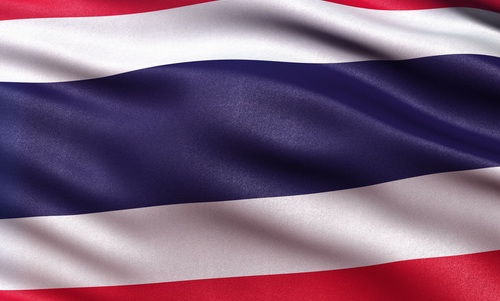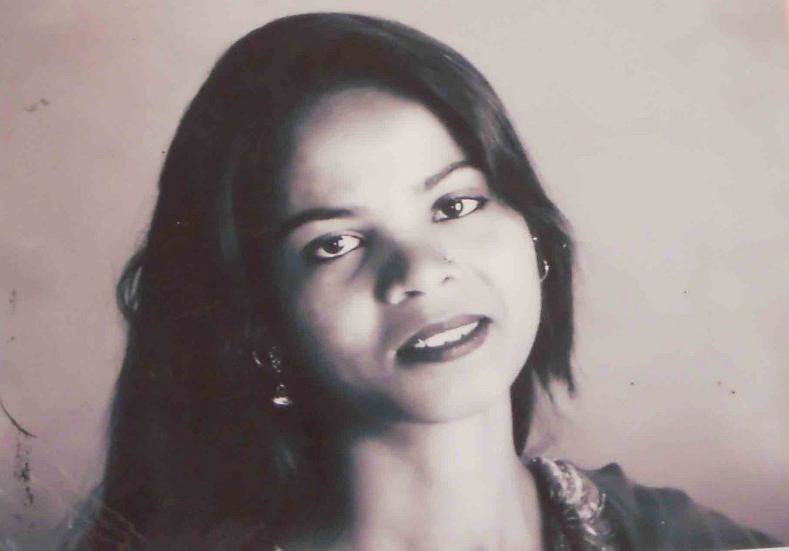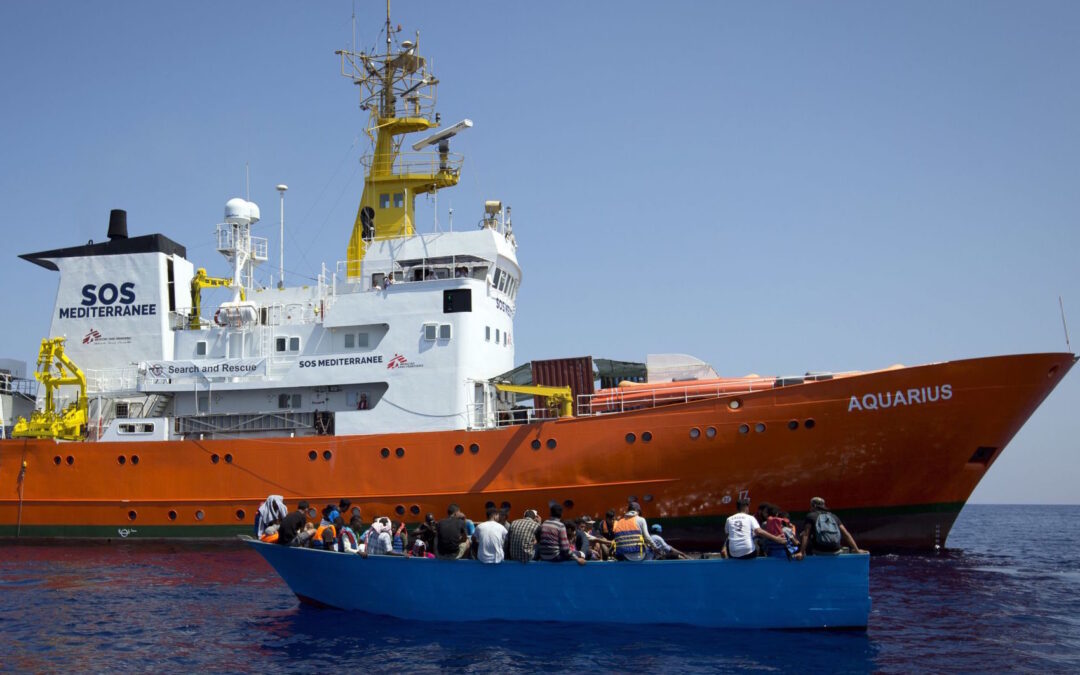
Feb 26, 2019
The ICJ has joined with other NGOs in a letter urging States to ensure that the UN Human Rights Council adopts a resolution that provides for a time-bound plan for the Government of Sri Lanka to implement its obligations and commitments for reconciliation, accountability and human rights in the country.
The letter reads as follows:
“February 25, 2019
Your Excellency,
Sri Lanka: Need for time-bound plan for implementation of commitments to the Human Rights Council
We write to seek your support in ensuring that the United Nations Human Rights Council (HRC or Council) adopts a resolution at this 40th session to maintain scrutiny of Sri Lanka’s progress towards implementation of its commitments, including, at minimum, regular reporting to the Council and a time-bound plan, developed in collaboration with the Office of the High Commissioner for Human Rights, to implement its pledges.
In October 2015, the Council adopted resolution 30/1 by consensus in which Sri Lanka, through its co-sponsorship, committed to 25 key undertakings across a range of human rights issues. A core commitment was to set up four transitional justice mechanisms to promote “reconciliation, accountability and human rights” in the country. These included an accountability mechanism involving international judges, prosecutors, investigators, and defense lawyers; a truth and reconciliation mechanism; an office of missing persons; and an office for reparations.
While some positive steps have been taken by the government to date, both the current and former High Commissioners in their reports have expressed concern at the slow rate of progress.
The UN High Commissioner for human rights, Michelle Bachelet, noted in her September 2018 update that Sri Lanka has “moved too slowly towards meaningful implementation of the transitional justice agenda.” She reiterated concern at the “lack of sufficient progress, particularly towards truth seeking and accountability” during the recent intersessional dialogue with HRC members and observers on February 4, 2019, noting that this created “significant obstacles to reconciliation.”
Her predecessor, Zeid al Ra’ad Hussein, in his opening remarks to the Council on September 11, 2017, had called on the government to realize that its obligations are not a mere “box-ticking exercise to placate the Council but as an essential undertaking to address the rights of all its people.”
Yet, it appears that the Sri Lankan government continues with exactly that endeavor.
Thus far only the Office of Missing Persons has been set up, but progress was delayed. The commissioners were appointed only in February 2018 and making the office operational was marred with logistical difficulties. The commissioners have held both public and private consultations with the families of victims and are observing the ongoing excavation and exhumation of a mass grave in Mannar. However, in its interim report in September 2018, the Office of Missing Persons called for “active cooperation” of various relevant state institutions, which has not been entirely forthcoming. Families of the forcibly disappeared are still awaiting answers.
While President Maithripala Sirisena said that all military-occupied civilian land in the predominantly ethnic Tamil north would be released by December 2018, progress has stalled, hindered in part by broad military claims of national security and the lack of a transparent process. Nor has the government fulfilled its pledge to repeal the abusive Prevention of Terrorism Act (PTA). While the cabinet has apparently adopted draft legislation to set up a National Truth Commission, it has yet to be made public for civil society consultations. Sri Lankan civil society groups have expressed reservations about the proposed Office for Reparations Bill, calling for a fully independent mechanism.
There has been no discernible progress on establishing an accountability mechanism involving international judges, prosecutors, and investigators. Instead, Sri Lankan political leaders have repeatedly said that there will be no foreign judges, and that “war heroes” will be protected from prosecution. Importantly, a report issued by the government-appointed Consultation Task Force, which conducted extensive nationwide consultations on the transitional justice mechanisms, has not been given the attention it deserves. The Task Force report contains detailed recommendations, drawn from all affected communities including the security services, and provides an important blueprint for the way forward in addressing abuses by both the Liberation Tigers of Tamil Eelam and government forces.
Numerous UN experts and special mandates have since 2015 highlighted the marginalization and misrepresentation faced by minority communities, as well as a trust-deficit between these communities and the government, due in significant part to a culture of impunity. This was exposed during the recent political and constitutional crisis in Sri Lanka that laid bare the volatility of the political environment and the imperative need for continued international engagement to support the government in protecting human rights and promoting reform, reconciliation and accountability.
The Human Rights Council has played a vital role in identifying the many steps needed to reconcile with the past, ensure justice and accountability, and implement necessary reforms. Its scrutiny has proved an important catalyst for the progress made to date.
At the upcoming HRC session, the High Commissioner will present a substantive report on the progress towards implementation of the resolution – and the many challenges remaining. It is crucial that the Council remain fully engaged with the process until the commitments Sri Lanka made to the HRC and its own people through its co-sponsorship of resolution 30/1 are met in full.
To maintain confidence in the process, states should engage meaningfully with the High Commissioner’s report, and ensure the Council adopts a resolution that, at minimum:
- welcomes the High Commissioner’s report (once available) and calls on the government of Sri Lanka to implement its recommendations;
- reaffirms resolution 30/1 and underlines the importance of the commitments therein being met in full;
- maintains reporting by the High Commissioner on the status of Sri Lanka’s progress towards implementation of its commitments, with opportunities for regular interim reporting through oral updates and interactive dialogues;
- expresses concern at the slow rate of progress and requests the government of Sri Lanka to collaborate with the OHCHR to develop a time-bound implementation plan for consideration by the Council in an interactive dialogue.
Given the insufficient progress to date, and rising frustrations that any accountability process seems stalled, a mere technical “rollover” resolution will be insufficient unless it includes provision for a clear timetable and framework for Sri Lanka to fulfill its commitments.
States should also make clear that stronger measures are needed to assist in monitoring, implementing and fulfilling these commitments, such as an OHCHR field presence, Special Procedure and evidence-gathering, justice and accountability mechanisms.
Anything less would fall substantially short of the expectations of victims and their families, and risk undermining faith in the process long before the promises of reconciliation, justice and reform have been translated into reality. Sri Lanka’s long-term peace and stability hinges upon the international community’s willingness to support the government in addressing the past so that it may look to the future.
Sincerely,
Amnesty International
Asian Forum for Human Rights and Development (FORUM-ASIA)
Commonwealth Human Rights Initiative
Franciscans International
Human Rights Watch
International Commission of Jurists
International Movement Against All Forms of Discrimination and Racism (IMADR)
International Service for Human Rights
Sri Lanka Advocacy”
The ICJ also submitted a written statement on Sri Lanka, to the Human Rights Council session.

Jan 30, 2019
The ICJ today, alongside dozens of other non-governmental organizations, called on the UN Human Rights Council to adopt a resolution addressing the situation in China, at its upcoming March 2019 session.
The NGOs urge a resolution that would call on China, among other things:
- to provide independent international human rights experts with unfettered access to all parts of the country, including areas populated by ethnic and religious minorities;
- to promptly reform national security legislation to meet international standards, and to stop using such laws in ways that violate human rights;
- to release individuals — including human rights defenders and lawyers among others — unjustly or arbitrarily detained.
The letter reads as follows:
30 January 2019
At upcoming session of Human Rights Council, States should pass resolution to address human rights violations in the People’s Republic of China
Your Excellency,
The past year was marked by vitally important monitoring and review of China’s human rights situation by the United Nations human rights system. The upcoming session of the UN Human Rights Council provides a key opportunity to reinforce the issues raised over the last year, and express collective concern about worsening rights abuse in China and the government’s failure to follow through on its obligations and commitments.
Considerable information has been available in the last year for governments to deepen their understanding of the situation in the country, spanning two UN reviews and nearly two dozen expert letters or opinions, including a full paragraph in the annual update from the UN High Commissioner for Human Rights. Nonetheless, the Chinese state, at the direction of the Chinese Communist Party, continues to suppress dissent and undermine efforts to hold it accountable to its obligations under international agreements.
Millions in the country face dire abuses of their fundamental human rights – be they members of ethnic groups, practitioners of Islam, Tibetan Buddhism or Christianity, human rights defenders, feminists, petitioners, lawyers, journalists, professors or students. Uyghurs and Tibetans are particularly targeted with discriminatory policies and practices. Furthermore, these abuses increasingly affect individuals and communities beyond China’s borders.
In light of this, the international community must push with one voice for change. We urge your government to contribute to and support a resolution on the human rights situation in China.
In doing this, you will join with others to make clear that no State’s development model or economic and political influence can exempt it from its international human rights obligations. If China seeks to be a responsible member of the United Nations and global actor, it should be open to and engage with criticism, rather than seek to deflect or discredit views with which it disagrees.
Such a resolution and any other joint action at the Council should:
- urge prompt, unfettered and independent access to all parts of the country, in particular Uyghur, other Turkic Muslim and Tibetan areas, by independent international human rights experts, including the UN High Commissioner for Human Rights and relevant UN Special Rapporteurs;
- demand an end to the abuse of national security legislation as a means of criminalising the work of human rights defenders, freedoms of expression, association, religion or belief and subverting due process, and call on China to seek technical assistance from UN experts to this end, including at the Office of the High Commissioner for Human Rights (OHCHR).
- call for the immediate release of any and all individuals subjected to unlawful and unjustified deprivation of liberty, in particular those held extra-legally or in extended pre-trial detention, and provide remedies and reparations to address harsh treatment, at times including torture, and loss of livelihoods.
- express support for the OHCHR and UN Country Team to take steps to expand, improve and regularise monitoring and reporting of the situation in China.
Resisting efforts by China to shield itself from international scrutiny, analysis, and reporting is essential to preventing widespread impunity for violations which, in some cases and based on available reporting, may amount to crimes against humanity. This resistance has the greatest, and perhaps only, chance of success when conducted jointly, and when backed by a multi-pronged multilateral and bilateral effort.
We therefore urge you to take advantage of this moment, and the platform of the Human Rights Council, to convey to China the need to open itself to international monitoring and reporting, and the need for rapid and drastic improvement of its human rights performance across all civil, cultural, economic, political, and social rights.
In so doing, you will demonstrate your commitment to supporting the Chinese, Tibetan and Uyghur human rights communities – those most central to sustainable change, and yet those most vulnerable in the struggle for it. You will also send a clear message to the Chinese government that such abuses cannot be tolerated or ignored, and that the international community will defend the universality of human rights.
Please rest assured, your Excellency, of our highest consideration, and our willingness to engage with you on these issues in the days and weeks to come.
Sincerely,
- Asian Forum for Human Rights and Development (FORUM-ASIA)
- Asociación Cultural Tibetano-Costarricense
- China Human Rights Accountability Center
- China Labour Bulletin
- Christian Solidarity Worldwide
- CIVICUS
- Core Group for the Tibetan Cause
- Free Tibet
- Frontline Defenders
- Grupo de Apoio ao Tibete
- Human Rights in China
- Humanitarian China
- International Campaign for Tibet
- International Commission of Jurists
- International Federation for Human Rights (FIDH)
- International Service for Human Rights
- International Tibet Network Secretariat
- Lawyers for Lawyers
- Lawyer’s Rights Watch Canada
- LUNGTA – Actief voor Tibet
- Network of Chinese Human Rights Defenders
- PEN America
- Safeguard Defenders
- Students for a Free Tibet
- Students for a Free Tibet Denmark
- Swedish Tibet Kommitten
- The Rights Practice
- Tibet House, Moscow
- Tibet Initiative Deutschland
- Tibet Justice Center
- TIBET LIVES
- TibetMx Querétaro
- Tibet Society UK
- Tibet Support Group Netherlands
- Tibet Watch
- Tibetan Youth Association Europe
- Uyghur Human Rights Project
- West Africa Human Rights Defenders Network (ROADDH)
- World Organisation Against Torture (OMCT)
- World Uyghur Congress
Relevant Background
The below points summarize key updates from the last six months and provide additional detail for the substance of a resolution. It is important to note that joint action should not preclude continuing the positive practice of raising the overall deterioration of human rights in China through bilateral statements under the full range of dialogues and general debates on the Council’s agenda.
- In August 2018, a review by the Committee on the Elimination of Racial Discrimination declared that western China’s Xinjiang region was akin to a ‘no-rights zone’, and urged the government to take prompt action to disclose information about internment camps and to release the up to one million Uyghurs, Kazakhs and other Muslim minorities arbitrarily detained there.
- In her update to the September 2018 session of the Human Rights Council, the UN High Commissioner on Human Rights Michelle Bachelet echoed the Committee’s concerns, noting ‘deeply disturbing allegations of large-scale arbitrary detentions of Uighurs and other Muslim communities, in so called re-education camps across Xinjiang’ and adding that her Office has also received ‘reports… of patterns of human rights violations in other regions’. She requested access for her Office to all regions of China.
- At the Universal Periodic Review of China in November 2018, the consistency of recommendations related to the need to improve respect for minority rights in general, and in particular address serious violations in Xinjiang and Tibet, was remarkable. Similarly, key issues of interest to the diverse human rights community in mainland China – freedom of expression and opinion, freedom of religion or belief, civil society space, ‘residential surveillance in a designated location’, and protections for LGBTI individuals – were clearly articulated.
- Over 2018, the UN Special Procedures issued at least 21 official communications on China, on issues ranging from access to education and cultural rights for Uyghurs and Tibetans; to due process violations, including risk of torture and suppression of the legal profession; to forced evictions and occupational safety risks for electronics workers. Also in 2018, the Working Group on Arbitrary Detention adopted at least two opinions, concerning two citizen journalists and three lawyers, deeming their detentions in China arbitrary under international human rights law.
- Naming specific individuals is critical; this contributes to sustained attention and improved conditions. Those who have been the subject of Communications by Special Procedures and, in some cases, referred to in the Concluding Observations of UN treaty bodies, include: Huang Qi, Li Yuhan, Jiang Tianyong, Qin Yongmin, Tibetan language advocate Tashi Wangchuk, Uyghur intellectual Ilham Tohti, and human rights lawyer Wang Quanzhang, sentenced after a closed trial on 26 December 2018 to four and a half years imprisonment for subversion of State power.
- An additional Communication by 10 Special Procedures, issued in August 2018, called for the removal of legal provisions permitting ‘residential surveillance in a designated location’, echoing concerns of the Committee against Torture that this constitutes de facto incommunicado detention.
The letter may be downloaded in PDF format here: UN-HRC40-OpenLetter-China-2019
The ICJ has repeatedly raised concerns about violations of rights of human rights lawyers in China. See for instance:

Jan 18, 2019
Today, the ICJ submitted recommendations to the Committee Considering the Draft Prevention and Suppression of Torture and Enforced Disappearance Act (‘Draft Act’) and urged that the Draft Act be amended without delay in order to ensure compliance with Thailand’s international legal obligations.
The Act, if properly conceived and implemented, will help ensure that Thailand is able to effectively address the crimes of torture and enforced disappearance, including by holding perpetrators accountable.
The Committee was recently set up by Thailand’s National Legislative Assembly (‘NLA’) to review the Draft Act, under discussion since 2017.
The recommendations were made with respect to the most recent amendments to the Draft Act that were approved by the NLA, in its first reading on 20 December 2018.
The ICJ’s recommendations reflect proposals for changes that ICJ and Amnesty International jointly first submitted to the Ministry of Justice on 23 November 2017.
While the ICJ welcomes the NLA’s decision to retain certain sections regarding emergency situations and non-refoulement in the Draft Act, it expressed concern at a number of deficiencies that would need to be addressed in order to bring the Draft Act into line with Thailand’s international human rights obligations, including the UN Convention against Torture and Other Cruel, Inhuman or Degrading Treatment or Punishment (UNCAT) and the International Convention for the Protection of All Persons from Enforced Disappearances (ICPPED).
The key concerns include:
- Incomplete definitions of the crimes of torture and enforced disappearance, as well as of other key terms;
- Absence of provisions concerning cruel, inhuman and degrading treatment or punishment (“CIDT/P”);
- Inadequacy of provisions relating to modes of liability for crimes described in the Draft Act;
- Inadequacy of provisions on the inadmissibility in legal proceedings of statements and other information obtained by torture, CIDT/P and enforced disappearances as evidence in legal proceedings; and
- Insufficient safeguards against torture, CIDT/P and enforced disappearances.
Background
Thailand is a State party to the International Covenant on Civil and Political Rights (ICCPR) and UNCAT, and has signed, but not yet ratified, ICPPED.
The Draft Act was produced by the Ministry of Justice in consultation with non-governmental organizations and other civil society actors. Public hearings on the Draft Act, as required by the 2017 Constitution, were conducted through a series of meetings, including a forum that was co-hosted by the ICJ.
The evaluation of the public hearings was prepared by the Ministry of Justice and included the recommendations that were submitted by the ICJ and Amnesty International in November 2017. However, not all of the critical issues raised were satisfactorily addressed.
The amended Draft Act was proposed to the Cabinet, which later forwarded it to the NLA.
Thailand’s NLA requires three readings of a bill before it can be passed into a law.
On 20 December 2018, the Draft Act was approved by the NLA, in its first reading, during meeting No. 86/2561, with 167 supporting, 3 against and 15 abstaining.
Consequently, 15 Committee members were appointed to review the bill within 45 days before to the second and third readings by the NLA. 10 of 15 members of the Committee are from the Thai military, police or navy.
The Committee’s revision of the Draft Act was due to have been completed by 2 February 2019, but this deadline has reportedly been extended for another 30 days.
The NLA will reportedly stop passing any laws before the national elections, due to be held on 24 March 2019, and will be terminated on the day prior to the date of convocation of the first sitting of the National Assembly after the elections.
The termination of the NLA would leave the status of the bill in doubt, and at the least mean significant delays in its consideration and passage.
Download:
Thailande-Torture and enforced dis-Advocacy-non legal submission-2019-ENG (full text in English, PDF)
Thailande-Torture and enforced dis-Advocacy-non legal submission-2019-THA (full text in Thai, PDF)
Read also:
ICJ and Amnesty International, Recommendations to Thailand’s Ministry of Justice on the Draft Prevention and Suppression of Torture and Enforced Disappearances Act

Oct 8, 2018
An opinion piece by Reema Omer, Legal Adviser, ICJ South Asia Programme
A special bench of the Supreme Court of Pakistan, headed by the Chief Justice, is scheduled to hear Asia bibi’s appeal against her conviction and death sentence under section 295-C of the Pakistan Penal Code (PPC) today.
Even if the Supreme Court now goes on to acquit Asia bibi, she has already spent eight years in prison, mostly on death row; Salman Taseer and Shahbaz Bhatti have lost their lives advocating for her release; and her family has been subjected to continuous threats and harassment, solely because of their relationship with someone accused of blasphemy.
This is the truth of how the blasphemy law operates in Pakistan – the accused has to suffer prolonged periods of pretrial detention, which in many cases is followed by years on death row before their appeals are decided.
Additionally, lawyers and judges in blasphemy cases live in a climate of fear and face very real threats of violence.
This results in a denial of the accused’s right to an effective defence and to a fair trial before an independent, impartial judiciary – which is now recognized as a fundamental right in Pakistan’s Constitution.
Asia bibi’s trial is particularly illustrative of these flaws.
The allegations against her are that she made three “defamatory and sarcastic” statements about the Prophet Muhammad (Peace Be Upon Him) on June 14, 2009, during an argument with three Muslim women while the four of them were picking fruit in a field.
The prosecution also claims Asia bibi “admitted” making these statements at a “public gathering” on June 29, 2009, and asked for forgiveness.
In her defence, Asia bibi stated she had a “quarrel” with Mafia and Asma in 2009, following their refusal to drink water brought for them by Asia bibi because she was Christian.
She claimed “some hot words were exchanged” during the argument, after which Mafia and Asma, alongside Qari Muhammad Salaam and his wife (who taught Asma and Mafia the Quran), fabricated the blasphemy case against her.
Asia bibi also stated that she had “great respect and honour for the Holy Prophet Muhammad (Peace Be Upon Him) and the Holy Quran” and never made the alleged blasphemous remarks.
A trial court convicted Asia bibi for blasphemy in November 2010 and sentenced her to death. The Lahore High Court upheld her conviction and confirmed her death sentence in October 2014. The Supreme Court admitted her appeal in July 2015.
The first hearing of the appeal before the Supreme Court was scheduled to take place on October 13, 2016, but one of the judges recused himself from the bench on the day of the hearing, citing “conflict of interest”.
The trial court’s, as well as Lahore High Court’s judgments, contain a number of flaws.
For example, in its judgment on Asia bibi’s appeal, the LHC conceded that “the defence has not defended its case with the required seriousness…” Yet, despite acknowledging possible violations of the right of a fair trial, particularly the right to an adequate defence, the Court went on to uphold Asia bibi’s conviction and death sentence.
Further, the trial court used Asia bibi’s statement against her as an admission of guilt, finding that the “hot words” exchanged between her and “the Muslim ladies” were “switched into a religious matter”, and concluding that the “hot words” must have been “nothing other than the blasphemy”.
Curiously, however, the trial court rejected the possibility that the altercation over water could be a motive for the prosecution eyewitnesses to falsely implicate Asia bibi for blasphemy, which was Asia bibi’s defence.
The Lahore High Court too did not probe further into Asia bibi’s statement and held that there was no possible “ill will” between the eyewitnesses and the accused for them to fabricate the blasphemy allegations.
Both courts also disregarded discrepancies in the accounts of the witnesses regarding the “public gathering” where Asia bibi allegedly “admitted” her guilt.
These discrepancies included significant differences in the number of people allegedly present at the “public gathering” (ranging from 100 to 2,000 in the different testimonies); how Asia bibi was brought to the “public hearing”, and how long the “hearing” lasted.
The courts also failed to apply “tazkia-tul-shahood” (inquiry undertaken by the court to establish the credibility of witnesses), without which defendants cannot be convicted or punished in hadh (capital punishment) cases for certain offences under Pakistani law.
During the entire course of the proceedings, neither court considered which of the three statements attributed to Asia bibi were “blasphemous” and why, or what was the “reasonable person” standard in the interpretation of section 295-C to meet the threshold of blasphemy.
Additionally, both courts did not consider whether Asia bibi possessed the requisite criminal intent to commit the crime of blasphemy, despite the Federal Shariat Court’s ruling that blasphemy is an “intentional or reckless wrong”.
The prosecution’s failure to prove all elements of the offence, including the requisite intent to defame the Prophet Muhammad (Peace Be Upon Him), calls into question the convictions by the trial court and the Lahore High Court.
In another case, the Supreme Court held that individuals accused of blasphemy “suffer beyond proportion or repair” in the absence of adequate safeguards against misapplication or misuse of such blasphemy laws.
This includes the long periods of time the accused spend in detention, in some cases with the threat of execution hanging over their heads, and the impact this has on their lives, their families, their professions, and their mental and physical well-being.
Confirming the Supreme Court’s findings, a 2015 study by the ICJ on the implementation of blasphemy laws in Pakistan found that more than 80 per cent of convictions by trial courts are overturned on appeal, very often because appellate courts find evidence and complaints fabricated based on “personal or political vendettas.”
A number of proposals to check against the misuse of blasphemy laws have been pending before Parliament, but given the sensitivities around the issue, they have not come to fruition.
Blasphemy laws have remained a hugely sensitive issue in Pakistan.
Today, all eyes are on the Supreme Court to see if it will decide Asia bibi’s appeal expeditiously, fairly and impartially and whether it will try to clean up some of the manifest injustices of the blasphemy law and how it’s being applied today.

Oct 3, 2018
European leaders should act quickly to help the Aquarius, the last nongovernmental search and rescue ship operating in the Mediterranean, register after its flag was withdrawn by Panamanian authorities, five international rights organizations said today in an open letter.
The letter was sent to European leaders on the fifth anniversary of the Lampedusa shipwreck, in which at least 368 people died, urging them to offer the Aquarius a flag.
“The Aquarius has saved tens of thousands of lives at sea, filling a gap left by states,” said Judith Sunderland, acting Europe and Central Asia deputy director at Human Rights Watch, on behalf of the organizations. “What better homage to those who died off Lampedusa five years ago than to ensure that the Aquarius—a symbol of solidarity and respect for human life and dignity—can continue its life-saving work.”
The letter was signed by Amnesty International, Human Rights Watch, European Council on Refugees and Exiles (ECRE), International Commission of Jurists (ICJ), and the International Federation for Human Rights (FIDH).
SOS MEDITERRANEE and MSF initiated a petition here.
For more information and to arrange an interview, please contact:
Róisín Pillay, ICJ Europe Programme Director: + 32 2 734 84 46; or roisin.pillay(a)icj.org
The full letter is available here: Europe-Aquarius Letter-Advocacy-Open Letter-2018-ENG









